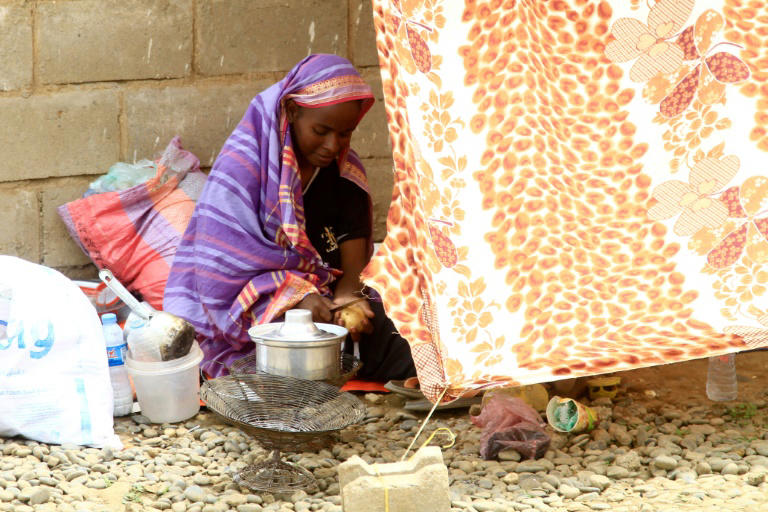It has to be seen to be believed how the poorest of the poor in a third country are used as pawns in a power game played by richer and more powerful nations. These powerful governments, who stand to only profit, commit almost a war against humanity by pretending to resolve bloody conflicts, while in reality adding fuel to fire.
The ongoing conflict in Sudan is a case in point. It has already taken a heavy toll of lives – 150,000 people – while on an average 10,000 children are getting displaced each day. Girls as young as eight are being raped by fighters, according to a report by Unicef. Worse still is the fact that babies born of sexual violence are being abandoned.
Nature too seems to be conspiring against the Sudanese population. Famine is intensifying and 25 million people are experiencing acute hunger, as the warring groups block aid deliveries. US special envoy to Sudan, Tom Perriello, has warned that starving women and children are being used by the army and paramilitary fighting against each other as their arsenal. The destruction in the country’s agriculture heartland shows darker days are ahead.
The International Organization for Migration has also expressed concern that the situation has reached breaking point. Heavy rains and flooding have exacerbated the humanitarian crisis.
The root cause of this human tragedy, far worse than any of the ongoing war, is the conflict that began more than a year ago, when the Sudanese Armed Forces (SAF) under Gen Abdel Fattah al-Burhan and the Rapid Support Forces (RSF) under Mohamed Hamdan Dagalo, known as Hemedti were locked in deadly war to gain control over the whole country.
Efforts to clinch a ceasefire deal last week ended in a fiasco after the Sudanese military did not turn up for talks in Geneva. Only the RSF attended the meeting. The latter was organically the creation of the army and the two had collaborated to overthrow the civilian democratic government in 2021 in a coup d’état. They wiped out the gains of the popular uprising that toppled the Islamist dictatorship of Omar Al-Bashir in 2019. However, RSF leaders can hardly claim to be peacemakers while continuing the terror campaign.
The opening failure of ceasefire talks in Geneva recently has, once again, brought back the civil war under international spotlight. The talks aimed at creating conditions for a truce in the conflict that has already forced 11 million people from their homes and 2.3 million others to flee to neighboring countries. With the warring groups blocking access to food aid, 25 million people in Sudan – more than half the population – are suffering from severe hunger.
The involvement of third parties is compounding matters further as the warring groups are getting a steady supply of arms from at least three countries. While Egypt and Saudi Arabia support the official army, the RSF receives backing from the United Arab Emirates and Russia. It is such a vicious circle that numerous armed groups and, willingly or unwillingly, tens of thousands of civilians have been sucked into the vortex of the conflict. In this climate weapons are available in far greater quantities than staple foods.
An Amnesty International report states weapons manufactured in China, Russia, Serbia, Turkey, the United Arab Emirates and Yemen are being delivered to Sudan, particularly in Darfur, despite the UN embargo that has applied to this western region of the country since 2004.
Everyone says third party interference must end if any viable cease-fire is to be enforced through political negotiations involving the Sudanese civil society. However, no one knows how and currently it seems only strong international pressure can bring about a change. The world at large cannot feign ignorance as millions suffer in a country three times as big as France.
